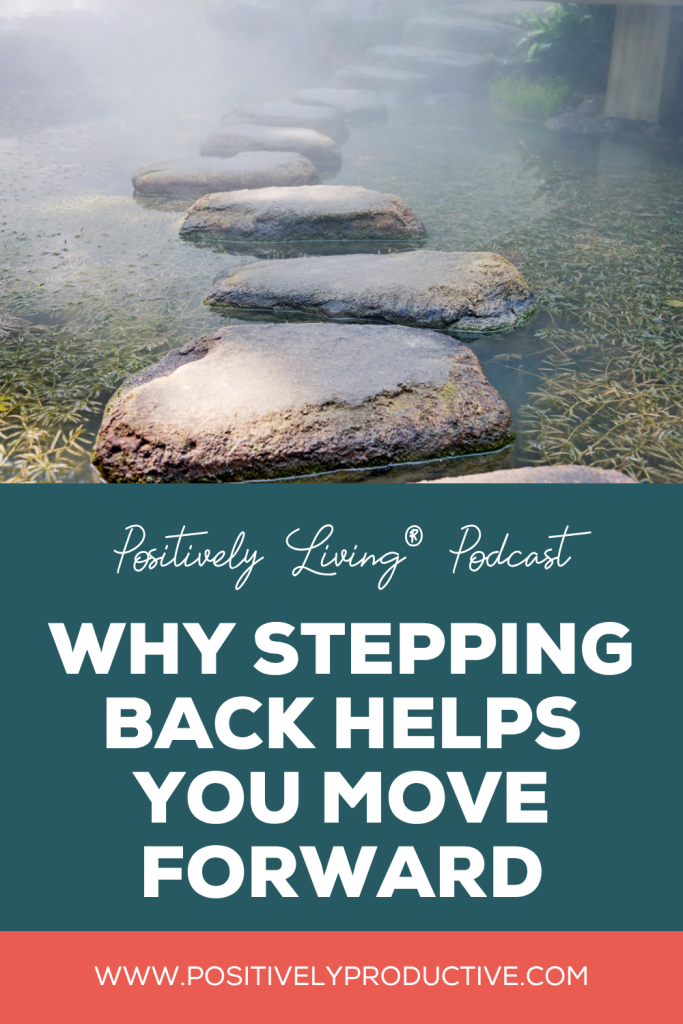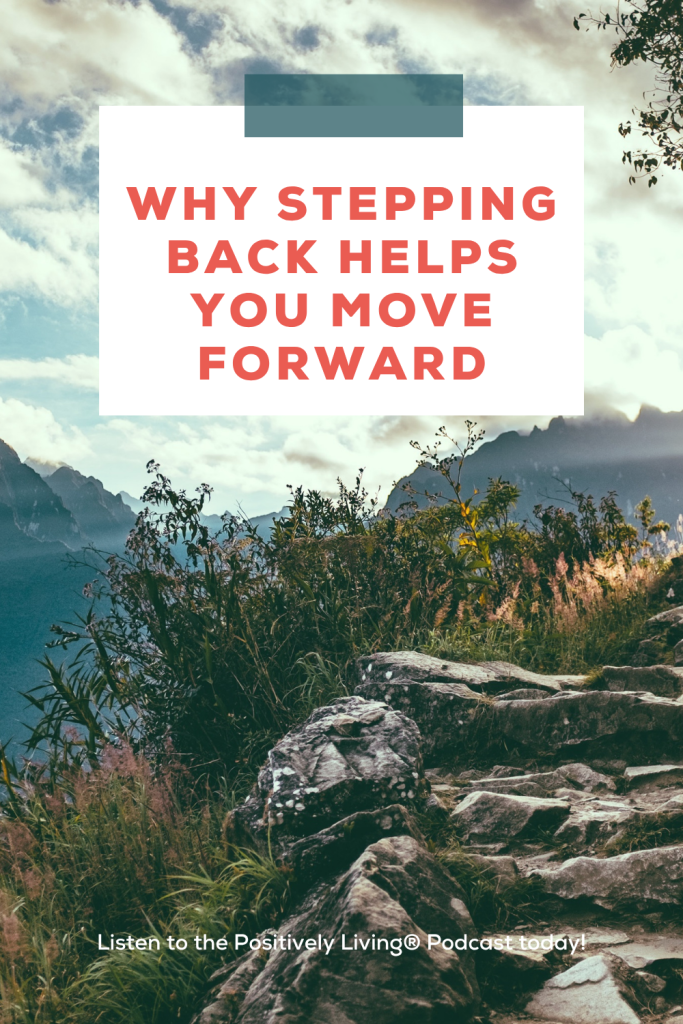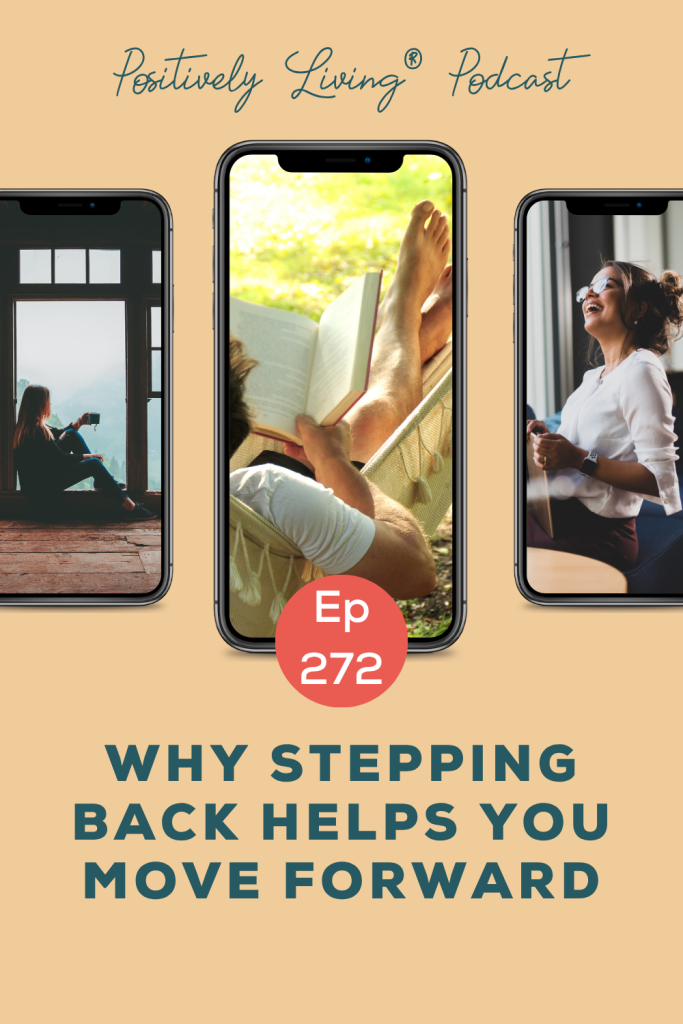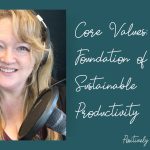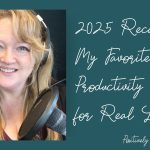Do you feel like you constantly need to push forward and that non-stop work equals peak productivity? The truth is, relentless doing often leads straight to burnout, not true effectiveness. Many of us struggle to give ourselves permission to take a break, fearing it will derail our progress.
In this re-released episode of the Positively LivingⓇ Podcast, I revisit the powerful, science-backed benefits of pausing. Discover how deliberately stepping away from your work can help your mind process, rejuvenate, and reset, leading to improved focus, enhanced problem-solving, higher quality output, and reduced stress.
I cover the following topics:
- The importance of pausing to improve focus and combat decision fatigue.
- How stepping away from problems allows your brain to find better solutions.
- Why regular breaks prevent mistakes and lead to higher quality work.
- How pausing triggers your relaxation response, reducing chronic stress and improving decision-making.
- The science behind why our brains need cycles of focus and rest to avoid cognitive fatigue and boost creativity.
- Practical ways to incorporate pauses into your day, including timed sprints, physical movement, and mindfulness.
The next time you find yourself in a whirlwind of work, remember that a pause is not a sign of weakness; it’s the very thing you need to be your most productive self.
Thank you for listening! If you enjoyed this episode, take a screenshot of the episode to post in your stories and tag me! And don’t forget to follow, rate, and review the podcast and tell me your key takeaways!
Hit Pause, Move Forward: Why Stepping Back Boosts Your Productivity
Do you find yourself caught in the trap of constant doing, believing that non-stop work is the only path to true productivity? You push, push, push, only to feel exhausted, overwhelmed, and like you are running in circles. It is easy to fall into this mindset, thinking a break is a luxury you cannot afford. But what if the very thing you are resisting—pausing—is actually the secret weapon to higher quality work, more creative ideas, and less stress? What if stepping back is the fastest way to move forward?
This article is for anyone who feels stuck in the cycle of endless busy work, fears taking a break, or simply wants a smarter way to get things done. We will explore the surprising science behind why pausing is essential and give you practical ways to build short, powerful breaks into your day. Get ready to discover how giving your mind space can help you show up better, do better work, and feel more aligned in your life.
The Science of Smart Breaks: Why Pausing is Productive
It feels counterintuitive, does it not? To step away from your work when you have so much to do. But your brain is not designed for continuous, non-stop effort. If you try to push through without breaks, you will quickly hit cognitive fatigue. This means your ability to focus, solve problems, and come up with new ideas actually gets worse. You end up making more mistakes, which means redoing work—definitely not productive!
The science shows that our brains work in cycles. When you take a break, your brain gets to recover and recharge. It even activates something called the default mode network. This is like your brain’s “wakeful rest” mode, where it is awake but not focused on outside tasks. Think of it as daydreaming or your mind wandering. While you might see this as wasted time, it is actually crucial for creativity, thinking deeply about things, and integrating new information. You cannot constantly take in new information without also taking time to process it. Pausing is about finding a balance: engaging when it is time to work, and disengaging to allow your brain to do its essential background work.
Quick Wins & Key Takeaways:
- Continuous work leads to mental fatigue and mistakes.
- Your brain needs cycles of focus and rest to perform its best.
- Pausing activates your brain’s “default mode network” for creativity and deeper thinking.
- You cannot absorb information constantly without time to process it.
- Regular breaks help you stay sharp and avoid burnout.
How Pausing Transforms Your Work and Well-Being
Deliberately stepping away from your work, even for a short time, has incredible benefits that directly impact your productivity and overall health. It is like hitting a reset button for your mind, allowing you to return to tasks with fresh eyes and renewed energy.
Here are four powerful ways pausing changes how you show up:
1. Boost Your Focus
It is hard to keep your attention sharp for long periods. Pausing helps you sustain your focus and battle decision fatigue. Think about standing in the cereal aisle, trying to pick one box from dozens—that is decision fatigue in action! Regular short breaks allow your mind to reset, helping you stay concentrated for longer periods when you return to your task. You are refreshing your ability to concentrate.
Quick Wins & Key Takeaways:
- Pausing acts like a reset button for your mind.
- It helps you maintain attention for longer work periods.
- Taking breaks fights decision fatigue, so you make better choices.
- Return to tasks with fresh, renewed attention.
2. Solve Problems Faster
Have you ever been stuck on a problem, walked away for a bit, and then the solution just pops into your head? This often happens in the shower, while driving, or right before falling asleep. This is your brain working for you while you are not actively thinking about the problem.
Stepping away gives your brain the space to process information unconsciously. It connects ideas in new ways, letting those “aha!” moments happen. When you return, you often see the problem with new clarity and can find answers much more easily.
Quick Wins & Key Takeaways:
- Stepping away allows your brain to process information in the background.
- Solutions often appear when you are not actively thinking about the problem.
- Gain new insights and approaches by taking a mental step back.
- Trust that your brain can work on problems even when you are resting.
3. Improve Your Work Quality
Rushing through tasks without breaks often leads to sloppy work, mistakes, and the need to redo things—which is the opposite of productive. When you are tired, your quality goes down.
Taking regular pauses keeps the quality of your work high. When your mind is fresh, you are more precise, thoughtful, and less likely to make errors. This means less time fixing mistakes later and more time delivering excellent results.
Quick Wins & Key Takeaways:
- Breaks prevent rushed work and common mistakes.
- High-quality work comes from a fresh, rested mind.
- Less redoing of tasks means more efficient work.
- Prioritize breaks to maintain your standards and output.
4. Cut Down Your Stress
Pausing is a natural stress reducer. When you take a moment to breathe and step back, you actually trigger your body’s relaxation response. This means less stress hormones flooding your system.
Think about making a big decision when you feel stressed versus when you feel calm. You always make a better choice when you are relaxed. While some stress is good for performance (too little means you are not motivated!), chronic stress is harmful. Pausing helps reduce that harmful chronic stress, protecting your mental health and improving your ability to make good decisions.
Quick Wins & Key Takeaways:
- Pausing activates your body’s relaxation response.
- It lowers stress hormones, improving your mental health.
- You make clearer, better decisions when you are calm.
- Focus on reducing chronic stress, which is very common.
- A calm mind leads to more effective actions.
Practical Ways to Build Pauses Into Your Day
Now that you know how powerful pausing is, how do you actually do it? It is easier than you think. You just need to build habits that support these intentional breaks.
Schedule Short Focus Sprints
One effective way to work with pauses is through timed “sprints.” This is where you focus intensely for a set period, then take a short break. A popular method is the Pomodoro Technique: work for 25 minutes, then take a 5-minute break. After four of these “Pomodoros,” take a longer break of 15-30 minutes. These short, structured breaks prevent burnout and keep your focus sharp. They give you a chance to reset before diving back in.
Add Movement Breaks
Sitting still for too long drains your energy and focus. Set a timer to remind yourself to stand up, stretch, or take a quick walk. Your smart devices can help with this, reminding you to move. Physical movement increases blood flow to your brain, making your mind clearer and boosting creative thinking. Try anchoring this habit to drinking water—stand up, get water, stretch, and return!
Practice Mindfulness and Meditation
Even a quick 5-10 minute meditation or mindfulness practice can do wonders. It reduces stress, improves your attention, and helps you stay present. This can be as simple as a gratitude practice, where you take a moment to appreciate the world around you or within you. This type of pausing is incredibly healing and helps you show up as your best self.
Use Visual Distancing
When you are deep in a project, it is hard to see errors or new solutions. Intentionally step away and look at your work from a distance—literally and figuratively. For example, when editing written work, try reading it backward. This slows your brain down and helps you spot things you would normally miss. This pause gives you a fresh perspective and is also good for your eyes!
Take Creative Pauses
Engage in activities you truly enjoy during your breaks. This is not “unproductive” time; it activates different parts of your brain, boosting creativity and preventing mental stagnation. Listen to music, doodle, read a few pages of a novel, or simply daydream. Make sure these activities are short and genuinely energizing for you. If you pick something like watching videos, use a timer to ensure it does not become a distraction itself.
Do an Alignment Review
Sometimes, you need to step back to make sure you are still on the right path. Regularly review what you are working on to see if it still aligns with your priorities and bigger goals. This can be a quick check-in at the end of the day, a weekly review, or a quarterly business review. This type of reflective pause prevents wasted effort and keeps you focused on what truly matters. It is one of the strongest productivity tools you have.
Make Pausing a Habit
To make pausing a consistent part of your routine, make it easy to do.
- Use Technology: Set alarms on your phone or smart device to remind you to take breaks or stand up.
- Schedule It: Put breaks in your calendar just like important meetings. This shows yourself that they are equally valuable.
- Set Up Your Space: Place your water bottle away from your desk if you want to make standing up for water a habit. Make your environment support your desired habits.
Pausing is a simple yet powerful concept. It is not just about making you more productive; it is about safeguarding your mental health and well-being. The next time you feel overwhelmed, remember to catch yourself, take a breath, and pause. That small moment can be the very thing you need to be your most effective self.
What will your next pause look like? Will you take five minutes to breathe, go for a short walk, or reflect on your current goals? Share the type of pause you are going to add to your day or week!
Learn more about Positively LivingⓇ and Lisa at https://positivelyproductive.com/podcast/
Could you use some support? The Quickstart Coaching session is a way to get to know your productivity path, fast! A speed-round strategy session is perfect for a quick win and to see what coaching can do, the Quickstart will encourage and inspire you to take intentional, effective action! Go to https://www.positivelyproductive.com/plpquick for a special listener discount!
CONNECT WITH LISA ZAWROTNY:
LINKS MENTIONED IN THIS EPISODE:
(Find links to books/gear on the Positively Productive Resources Page.)
Dance Song Playlist V1, V2, V3
Music by Ian and Jeff Zawrotny
Start your own podcast with Buzzsprout!

